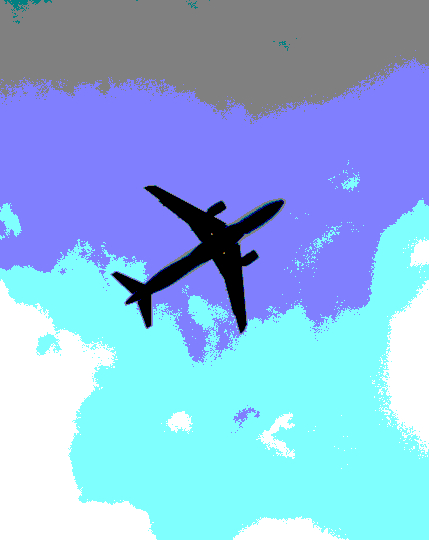Plane deal too complex to land
 Airservices Australia has been accused of a conflict of interest over a billion-dollar traffic management contract.
Airservices Australia has been accused of a conflict of interest over a billion-dollar traffic management contract.
Airservices – an Australian Government-owned company – has selected Thales as its preferred vendor for the billion-dollar OneSKY system overhaul with Defence.
The civil-military air traffic management system (CMATS) project commenced in 2010 and was originally intended to reach final operational capability in 2017-18.
Airservices selected Thales in March 2015, but now more than two years after the decision, Airservices is yet to sign a contract and may not do so before the end of 2017.
Reports say the project could greatly outstrip its initial cost estimates, and raised suggestions of a potential conflict of interest.
The OneSKY system is designed to eventually facilitate air traffic control for about 11 per cent of the world's civil and military aircraft, merging the Defence and Airservices air traffic systems into the “world's most advanced air traffic control system”.
But the high level of complexity the project involves is reportedly holding up the contract process with supplier Thales.
“Air traffic control systems are not an off-the-shelf product. Each system must cater for a nation's differing airspace coverage requirements, differing number of interfaces, the number of facilities and the specific requirements of the local aviation industry,” air chief marshal Sir Angus Houston said at a recent senate committee hearing.
“These differences create complexities that mean that all air traffic control systems need to be configured and tailored to address not only the complexities but also the peculiarities of the actual area to be covered. Every system is unique.”
The air chief marshal said this made the procurement process “inherently constrained and complex from both an operational and a commercial perspective”.
The Australian National Audit Office (ANAO) had earlier revealed the process required the testing of nine bids in various phases against over 2600 specification requirements.
Airservices has reportedly spent $75 million on advance work orders ahead of a formal contract signing with Thales, and is now expecting to spend another $652 million on the CMATS over the next five years.
Sir Angus Houston told the committee hearing that Defence has recently appealed to the national security committee of cabinet for “I think some form of cost increase”, that could see the project’s costs far exceed $1 billion.
The initial cost estimate for the OneSKY overhaul was $727.6 million.
Airservices has now been accused of a potential conflict of interest in the procurement process with Thales.
Harry Bradford, the lead negotiator on the Thales deal, was hired through the not-for-profit International Centre for Complex Project Management (ICCPM) for a price of $1 million.
Mr Bradford has previously sat on the board of the ICCPM alongside Thales managing director Chris Jenkins.
“I mean, who in their right mind thought that this could look kosher? For a business that has no competition in the marketplace, you turn over a good dollar for the Australian taxpayer. Well, you used to turn over a very good dollar for the taxpayer; I'm not so sure now,” Labor senator Glenn Sterle said.
But Airservices board member David Marchant told the committee that the board position was voluntary and non-remunerated.
“That same board of ICCPM actually had other bidders' CEOs on it as well. It's an industry association, plus defence personnel et cetera, including defence from other countries,” he said.
“I want to emphasise— and I've gone through this very thoroughly in the background in Bradford's case—he has never been an employee or contractor of Thales. In fact, he had been of a competitor.”
Marchant said the market for such particular and complex skillsets was
“very limited”.
“The reality is that no organisation such as Airservices has within its staff that sort of detailed skill set for complex technology negotiations,” he said.
Marchant said Thales was picked because of its experience.
“There are more than a thousand interfaces, and the language of those interfaces is quite different between various parts of Defence and various parts of Airservices, and this thing has to interpret and interface with about a thousand different frameworks, let alone the international ones etc,” he said.
“In one case, a bidder had a program that does that to a large degree, including trajectory, but the interfaces are enormous here compared to the locations they've actually used.”
He said Thales – which already provides Airservices’ existing TAAATS system - had a “demonstrated product” in use.
The evaluation process identified Thales as the lowest-risk option, but was also the second most expensive bid.
“The amount of effort (in terms of cost and schedule) to bring the Thales solution to an ‘acceptable baseline’ was assessed to be ‘minimal’ compared with ‘very significant’ for the other two tenders,” an ANAO report from April states.








 Print
Print